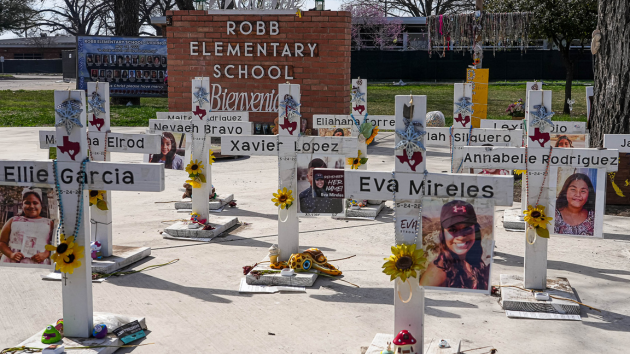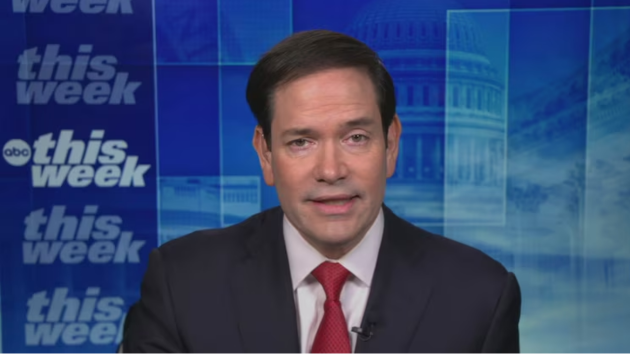Arizona patients, doctors describe chaos, confusion over 1864 abortion ban
Written by ABC Audio ALL RIGHTS RESERVED on April 24, 2024

(PHOENIX) — Chaos and confusion have ensued after the Arizona Supreme Court issued a ruling April 9 that a near-total abortion ban from 1864 could go into effect, despite it predating Arizona becoming a state.
The ban prohibits all abortions, with the only exception being to save the life of the mother. After lawmakers had initially signaled they would pass legislation throwing out the ban before it went into effect, lawmakers blocked the effort at the last minute and state Republicans have indicated they do not want to move too fast to repeal the ban.
“The last thing we should be doing today is rushing a bill through the legislative process to repeal a law that has been enacted and reaffirmed by the Legislature several times,” Speaker Ben Toma, a Republican, said during a state House session last week.
“Abortion is a complicated topic — it is ethically, morally complex,” said Toma. “I understand that we have deeply held beliefs.”
This comes weeks after an Arizona lawmaker took to the legislature’s floor to share that she is planning to get an abortion for a nonviable pregnancy.
Now, for doctors trying to avoid arrest and patients needing medical care, there is a growing sense of urgency and anger about the future.
“I didn’t go to medical school to go to jail,” Dr. DeShawn Taylor, a physician and owner of Desert Star Institute for Family Planning in Phoenix, told “Nightline.”
Arizona Attorney General Kris Mayes said she would urge Arizonans who are pregnant to “make a plan.”
“I can’t believe I’m having to say that,” Mayes said in an interview with “Nightline.”
Mayes, a Democrat, has said that “no woman or doctor will be prosecuted under this draconian law in this state,” but also acknowledges that she can’t stop local prosecutors from bringing charges.
Anyone found guilty of violating the strict abortion ban could face two to five years in state prison.
Dr. Gabrielle Goodrick, the owner of Camelback Family Planning in Phoenix — the state’s busiest abortion provider — says she hasn’t taken a day off since the state Supreme Court’s decision was issued.
Clinics like Goodrick’s have had to periodically halt abortion services since the U.S. Supreme Court overturned Roe v. Wade in 2022. Abortion was allowed in Arizona up to 24 weeks, then a 15-week ban was put into place and soon, a near-total ban is set to go into effect.
There is uncertainty over when the total abortion ban could go into effect — some think it could be two weeks, others say 45 days or even 60 days.
“What we’re hearing from patients is fear – calling – ‘when is this effective?’ ‘Oh my gosh, can I get the care that I need?’ I mean, one patient called, she didn’t even have a positive pregnancy test yet, but her period was late and she was panicking, [saying,] ‘What if it’s positive, where am I going to go? What’s going to happen?'” Goodrick said.
A patient, who asked that ABC News call her Penelope, said she feels a “profound amount of sadness for women who might not be able to get care in a few weeks.”
“It would be financially irresponsible to have a child right now for us,” Penelope said.
“Law being from 1864? It’s hard to really articulate how I feel about that. The fact that the law is so old, in some ways it proves to me just how archaic our government can be sometimes,” she said.
Another patient at Camelback Family Planning told ABC News she doesn’t feel she can put her body through another pregnancy.
“For me to carry another baby would be a lot of wear and tear on my body and I want to raise a daughter that I have now,” Amaretta, who did not provide her last name, said.
Clinic administrators said the facility is also a point of access for women in the South, where more and more states have ceased nearly all abortion services — they have gotten patients from Texas, the deep South and even Idaho and Ohio.
Taylor also says she is working nonstop, and her biggest concern is the criminalization of the procedure.
Despite her convictions, Taylor said she has to abide by the laws and can’t risk going to prison — but she will continue to provide care until she can’t do it anymore.
“I feel that I just want to be real about my intention to stay free. Black women physicians are 2% of the physician workforce here in the United States, so my existence matters. They come here because I’m here and I don’t take that for granted,” Taylor said.
Copyright © 2024, ABC Audio. All rights reserved.

 KVSP
KVSP 




